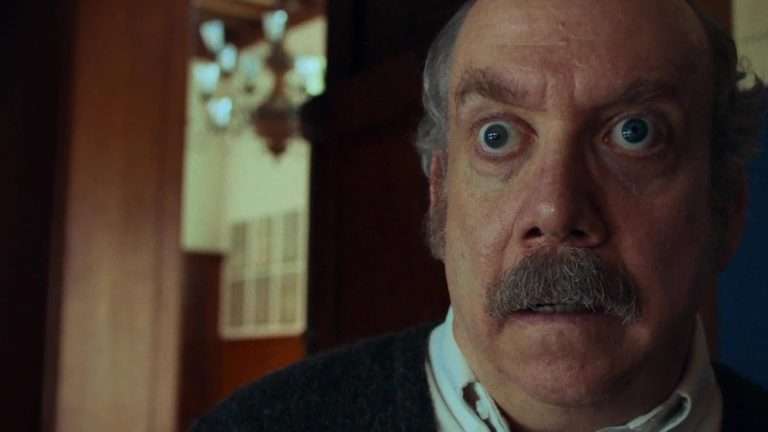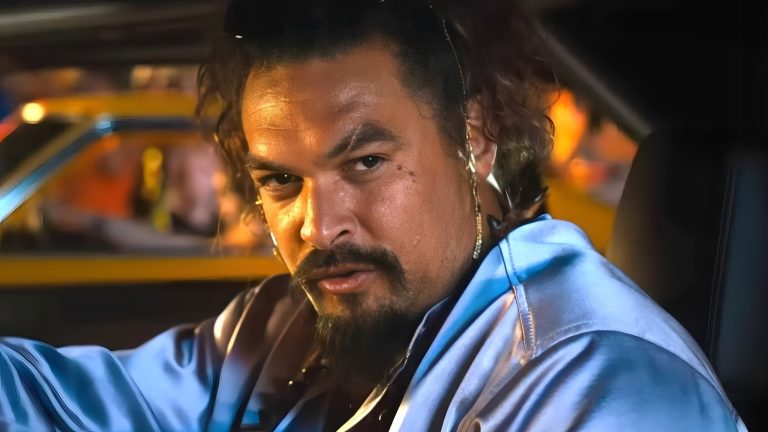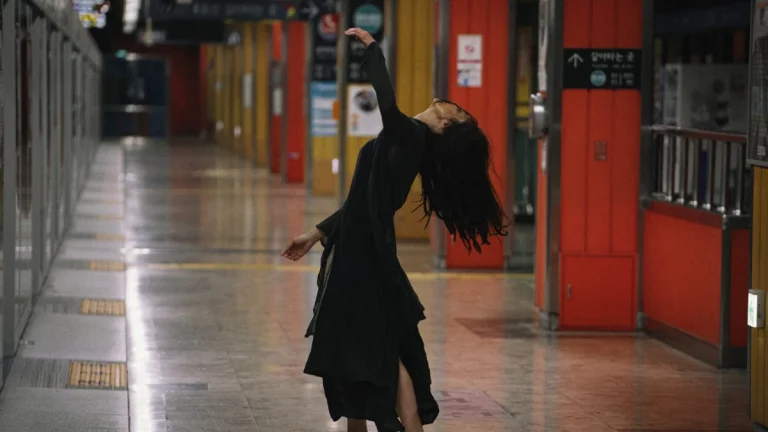Faraaz (2023) ‘Netflix’ Movie Ending, Explained: There have been countless horrifying terror incidents provoked by religious conflicts across the Indian subcontinent. But one that remains harrowing to date is the one that rattled Dhaka back in 2016. A group of five young extremists had attacked the posh Holey Artisan Bakery and taken hostages inside, leaving 29 people dead. These included foreign nationals as well as non-Islamic people, sparing only Bangladeshi Muslims.
Writer/director Hansal Mehta isn’t foreign to subjects that talk about dialectic revolutions centering around brainwashing. Two of his earliest films, “Shahid” as well as “Omerta,” both fascinatingly explored the human condition despite ever humanizing their titular characters. His latest film, “Faraaz,” actively goes beyond its title in giving its protagonist a rooted background. But who is Faraaz? How does he end up as a hostage in this grave situation? And what is the film trying to say? Let’s take a detailed look at the film, which is now streaming on Netflix.
Faraaz (2023) Plot Summary & Movie Synopsis
“Faraaz” gives a snapshot into the harrowing night when the tragedy occurred, recreating the posh café with its pristine and textured cinematography. The opening scene of the movie shows a group of ISIS militants getting ready for their operation under the direction of a leader named Rajiv.
What is the Film’s Setting? What Happened at the Holey Artisan Bakery?
In the first few minutes of the movie, we watch the terrorists getting ready for their operation, one pumping himself up while one of the other ones looks at himself in the mirror with excessive pride. This all is captured in one rattling take, and Mehta makes sure to make the motivations and intentions of these young men clear despite not forming a conventional backstory. Rajiv seems to be the guy most likely to be the one who would’ve brainwashed these five men, yet the way they talk and behave just suggests how otherwise rooted they are in the modern world.
As we soon learn, all five of these individuals were from fairly educated middle-class backgrounds, nurtured around the same principles the country was born out of. And yet, here they were with their twisted interpretation of religion, where violence and bigotry masqueraded under the facade of faith. Right upon reaching their target destination, they nonchalantly kill the main guard standing outside the café. The instructions are clear: killing everyone except Bangladeshi Muslims. What is their main aim behind this? To kill every non-Muslim in order to defend Islam and draw the world’s attention on how to bring justice to the issue. Their unethical methodology goes the same way: making a statement through violence because they think they would secure a seat in heaven.
Who Is Faraaz? What Section of The Society Does He Come From?
Concurrently as we watch the terrorists get ready to unleash havoc, we meet Faraaz (Zahan Kapoor) sitting in his lavish living space with his family. The titular Faraz – Bangladesh ka Shehzada – is born into the upper crust of a country dealing with its own disparities as any other. He appears to be wearing his heart on his sleeve in a film about evoking a feeling of universal conscience.
His mother (Juhi Babbar) seems troubled and frustrated at not being able to travel to Malaysia as planned. Apparently, she wanted her son to go to Stanford for his further studies, but he seems adamant about refusing to leave his homeland. The conversation ends on a bitter note, and as the audience, we clearly get a sense of how both are right on their own terms yet don’t want to hurt the other. However, a frustrated Faraaz leaves the house to go out with a couple of his friends – Tarika from India and another Muslim girl from his neighborhood. Their place of meeting? Holey Artisan Bakery.
How Do Faraaz & Nibras Know Each Other?
We soon learn that, in actuality, three of the five assailants came from prestigious national schools, while the other two were students of Madrasa. As discussed earlier, despite being fairly educated, these young men were delusional enough to subscribe their promising minds to a corroding lie. As is often the case with Islamic terrorism, Jihadi organizations targeted them and directed their nascent drive against the world. Despite their pride in the ‘Islamic’ way of life, they are frequently seen smoking, allowing their hypocrisy to speak for itself. The promises of attaining the ultimate martyrdom after establishing (and reinforcing) an Islamic state seem to be their only purpose in life.
In fact, when one of the five gunmen shows hesitancy at sacrificing himself after proving the point, one of the other hate-filled fanatics, Nibras (Aditya Rawal), kills him unflinchingly. We learn at an earlier point that Nibras used to be Faraaz’s football pal, and for that reason, he seems to be relatively soft on him. But because of the latter’s persistence in protecting his two friends, he gradually gets himself in more and more trouble, pissing off the other four militants.
The film makes an intriguing point of contention here – what made one of the two choose his country and its principles above everything else while turning the other into a sadistic killer? Was it the former’s privilege, coming from the higher ranks of society, or was it all about the latter’s willingness to submit to a radical cause?
What Do the Terrorists Want?
In front of the whole crowd, the terrorists use the gravely generalized and misplaced scenario of opposing Western nations and how they have undermined Islam, thus justifying their brainless acts of terror. The movie reinforces the dichotomy of the two notions by showing us an argument between Nibras and Faraaz (which unfortunately soon turns into a Twitter battle of sorts, devoid of any deeper exploration). Nibras claims that anyone who doesn’t abide by the same religion and his interpretation of it is an infidel who deserves to perish.
Faraaz, however, consistently defended his fully informed and reasonable convictions against him. At a point, he even quotes the Arabic word for reasoning, ‘Ijtihad,’ from the Quran while making his point against Nibras, asserting how Allah had wished all to doubt, challenge, and question in times of need. Unfortunately, it’s far too late for Nibras and his other accomplice to see how the Quran, like any other religious text, advocates for peace and concord.
“Faraaz” also gives us a tense insight into how the authorities weren’t sitting still during the course of the night. After initially surrounding the café and falling to the ground due to the firing, many officers end up dying because of ill equipment from the top. The last surviving committed DMP sub-inspector contacts the commissioner and maintains his ground. Even when Faraaz’s mother tries to use her background to get access to the café, he reinstates the rules.
In due course, even SWAT and RAB are brought in, but the top orders from the divisive Prime Minister of the time advise the police to first negotiate with the assailants. As the morning light dawns, so does the realization upon the officers of how many lives had already been taken – something that was totally avoidable. But the terrorists, now having watched the news, realize how they had made their point enough. Thus, after being appreciated for their actions by their leader, they finally decide to set the hostages free. Everyone steps out of the place of havoc, but Faraaz and his friends seem missing. Where are they?
Faraaz (2023) Ending Explained:
Faraaz was the only person inside the café who verbally stood his ground repeatedly. While people who were identified as local Muslims through the IDs were asked to leave, Nibras noticed one of Faraaz’s friends’ Hindu wristband upon leaving. He stops the two girls, as the other one, too, had vehemently opposed one of the militants earlier in the film, but lets Faraaz leave.
How Does Faraaz Die, Despite being a Bangladeshi Muslim?
But as we’ve learned by this point, Faraaz is someone who stands for harmony and peace. This pisses Nibras off, which leads to the last fatalities from the grim event. Before the five men surrender their own lives to the authorities in the belief that they are making a sacrifice, it is Faraaz who truly sacrifices his life for religious values. The thematic stronghold of the movie is born out of this very dichotomy of what a human sacrifice can attribute itself to and what it can be reduced to.
Faraaz Ayaz Hussain, who was the grandson of Latifur Rahman, chairman of Transcom Group, became the only person to receive the Mother Teresa Memorial International Award posthumously. At the end of the film, his mother is seen collecting the award, speaking of how she doesn’t really mourn the loss of her son. Instead, she already knew what unfortunate fate he would’ve met when she didn’t see him step out of the café that day.
The last words of the film transcend boundaries, making the audience contemplate deeper about the larger role we have to play in preserving humanity. How it’s important to push back against voices of hate and division, as that’s the only antidote to the toxin of indifference.
Faraaz (2023) Final Thoughts & Main Criticism
“Faraaz” comes across as an interesting film to think about in today’s climate of state-induced terror. The film isn’t much different in its approach to delving into the psyche of the modern-day Muslim than from what “Shahid” and “Omerta” did. But, unlike those films, the literal geographical distance between the narrative and the men perpetrating the violence reinforces the arms-length distance between the narrative and the men committing the violence; by setting the story in Bangladesh, another secular country, even though it’s all based on an actual event, one can’t help but wonder if the choice of redirecting the focus away from the mainland issues of bigotry and rising fascism translates into a responsible filmmaking choice or not.
The Indian audience has been fed with a string of films in the past few years that were only looked at and defended by narrowing down their merit to a singular thing; is it always constructive to make the discourse around a film about the correct ‘intentions’ of the filmmaker? The biggest irony, however, is how the storytelling in “Faraaz” feels responsible yet imprudent at the same time; what one brings to the movie would also inform their takeaway from it.
Perhaps the bigger irony is how Faraaz’s journey, coming from the privileged crust of society, reflects most ‘liberal’ contemporary filmmakers’ own outlook of being at a distance from the realities of how shallow the psyche of the mass Indian audience has become when it comes to such combustible topics. While the filmmaking consistently remains neat and tense in the movie, I can’t help but wonder how there could be different ways of circumventing the censorship and other state mechanisms of today. After all, that’s where the medium has shown promises of impacting the collective conscience.







![Triple Frontier [2019] Review: Interesting Premise, Uneven Execution.](https://79468c92.delivery.rocketcdn.me/wp-content/uploads/2019/03/triple-frontier-screenshot-1-768x360.jpg)